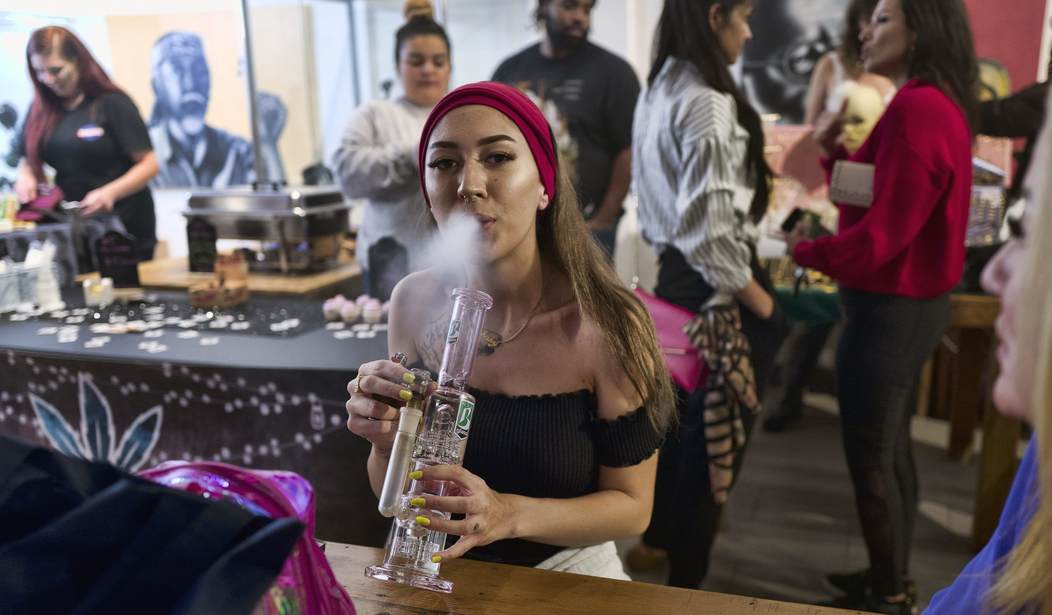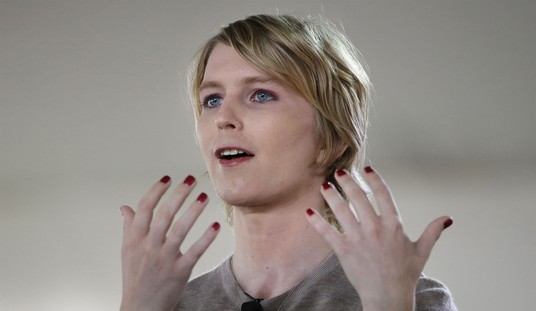Kevin Sabet, president of the anti-pot-legalization group Smart Approaches to Marijuana, compared the destructive effects of allowing people to smoke weed just for fun to the catastrophic impact of Hurricane Florence.
“While most folks in Michigan will likely be far out of harm’s way this hurricane season,” Sabet, a former senior policy drug adviser to President Obama, wrote in his Sept. 14 Detroit Free Press op-ed, “there is another storm brewing on the horizon that could bring about destructive effects on public health and safety: marijuana legalization.”
The emotion is typical of those on Sabet’s side of the marijuana debate as they race to stave off what they see as a multi-state marijuana apocalypse. Their attitude is reportedly shared by the Trump administration.
New Jersey
New Jersey Senate President Stephen Sweeney said Sept. 27 that he expected to see a final vote on a proposal to legalize marijuana on Oct. 29. “At this point now, we’re so far with the legislation – we’ll have the two issues we have to work out resolved,” Sweeney told reporters.
Gov. Phil Murphy (D) sees the issue of legalizing pot smoking as one of social justice and fairness. But the prospect of perhaps millions of stoned New Jersey residents stumbling through life doesn’t please Sussex County Freeholder Carl Lazzaro (R).
“We don’t need to have your mind altered to have fun,” Lazzaro said as the county board passed a non-binding resolution in opposition to legalized-marijuana legislation being debated in the state’s legislature.
New Jersey legislators opposed to legalizing marijuana see decriminalizing the drug as a more attractive alternative. State Sen. Ronald Rice, a Democrat who leads the Legislative Black Caucus, introduced legislation back in February that would let people possess less than 10 grams of pot without fear of criminal penalty.
“I think this whole legalization stuff needs to slow down,” Rice said to reporters after proposing the bill. “This is a money bill – legalization. I don’t want to be a part of that. I do want social justice, and that’s what this bill is about.”
North Dakota
According to NORML, a group campaigning to legalize pot nationwide, North Dakota has some of the harshest marijuana laws in the nation. However, a November ballot proposal, Measure 3, would move the state in the opposite direction.
Former North Dakota attorney general and district court judge Bob Wefald, who is now leading the group North Dakotans Against the Legalization of Recreational Marijuana, warns voters that if they approve Measure 3 in November their state will become the “most liberal state in the nation” on the marijuana issue.
Wefald not only thinks legal pot would be bad for North Dakota, he believes Measure 3, which would remove all criminal penalties, is lousy legislation because it doesn’t call for a special tax on pot sales.
“You have nothing to lose by pumping the brakes right now and waiting to learn a little more about marijuana legalization from other states that have legalized,” Luke Niforatos with Smart Approaches to Marijuana said. “You have everything to lose if you’re wrong.”
Fifty-six percent of North Dakota voters who responded to a statewide poll in August said they would be voting against Measure 3 in November. Only 38 percent said they would definitely be voting in favor of the proposal.
Cole Haymond, an advisor for Legalize ND, the group backing Measure 3, disputed the poll’s methodology and results but admitted he expected a close November vote.
“We have always approached this effort as if it will be a tough fight,” Haymond said to the Grand Forks Herald.
Michigan
Those North Dakota voter survey numbers were flipped in Michigan. Kevin Sabet’s warning of a hurricane-like tragedy in the Detroit Free Press didn’t come in time to dissuade more than 56 percent of Michigan voters from saying they would support a ballot proposition to legalize weed. Thirty-eight percent were opposed.
Two weeks after the survey hit the front page of the Detroit News, Ottawa County, Mich., Sheriff Steve Kempker told reporters at a news conference conducted by police, prosecutors and community health officials that if voters passed Proposal 1 to legalize marijuana, they would “change the landscape of our communities.”
“There’s a false idea that marijuana is safe; it is not safe. There are direct correlations with a variety of health issues,” said Joann Hoganson, director of community wellness at the Kent County, Mich., Health Department.
Muskegon County, Mich., Prosecutor D.J. Hilson said that rather than closing the door on illegal pot growers and sellers, legalizing marijuana has attracted criminals to do business in states where marijuana is legal.
“The black market is still thriving in the states that have legalized marijuana, to the point where innocent neighborhoods have seen an influx of drug cartels going into their neighborhoods and turning them upside down,” said Hilson.
Forecast
Advocates of legalization see the November elections as a tipping point of sorts for a green wave of marijuana legalization in America. Marijuana Business Daily writer Eli McVey predicts the “possibility of another banner year for the cannabis legalization movement… by the end of 2018.”
More evidence of this green wave of legal weed is seen where green is the only color that matters: on Wall Street. Marijuana stocks were “blazing hot” in August, according to the Motley Fool.
Two reasons for that, according to the Fool: First, there’s the coming nationwide legalization of pot in Canada. But, more importantly, big business is already surfing this green wave.
Constellation Brands, the company that makes Corona beer, took a $3.8 billion equity stake in Canopy Growth Corp., the largest marijuana stock, by market cap. Also, all but three of 27 marijuana company stocks showed growth of at least 11 percent in August.
“I think we are a lot closer to federal legalization in the U.S. than most people realize,” Brendan Kennedy, CEO of marijuana IPO Tilray, said to analysts in August.
But wait a minute, here comes the White House.
Buzz Feed reported the Trump administration had “secretly amassed a committee of federal agencies from across the government” to fight back against the green wave of support for legalized marijuana.
None of the 14 agencies said to be involved in this effort would confirm the committee’s existence, but neither did they deny it.
“Staff believe that if the administration is to turn the tide on increasing marijuana use there is an urgent need,” said the meeting summary, “to message the facts about the negative impacts of marijuana use, production, and trafficking on national health, safety, and security.”









Join the conversation as a VIP Member